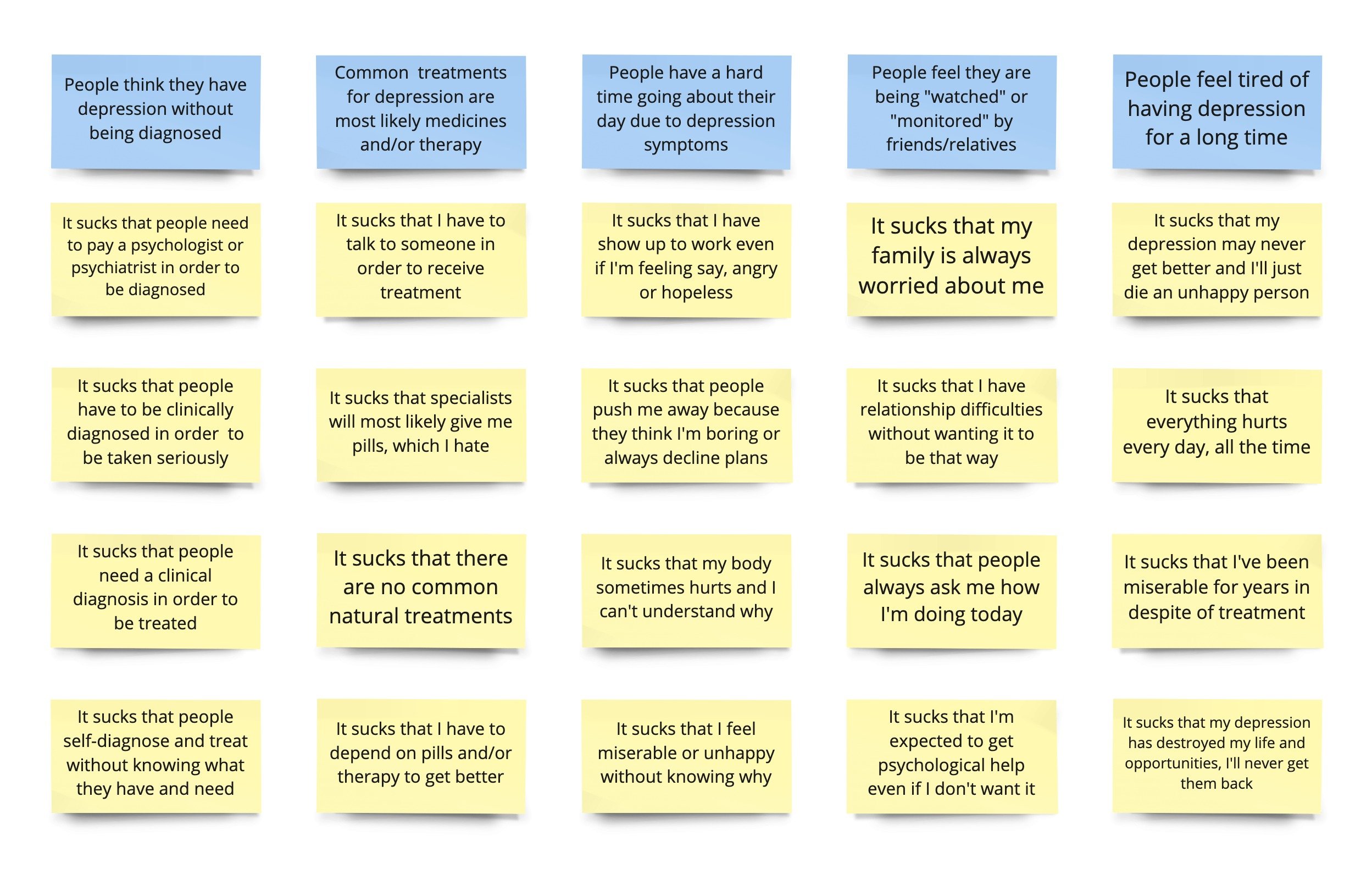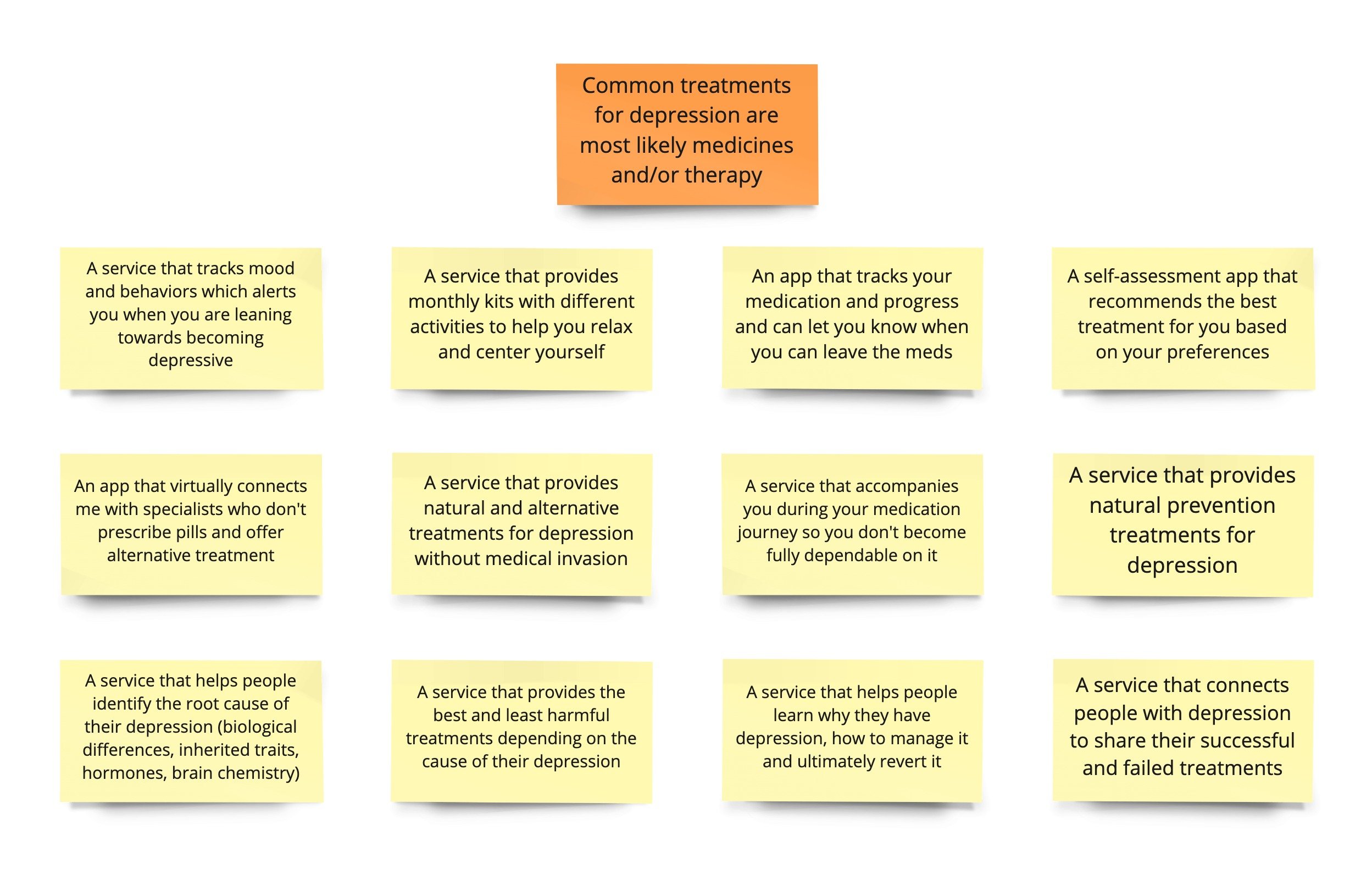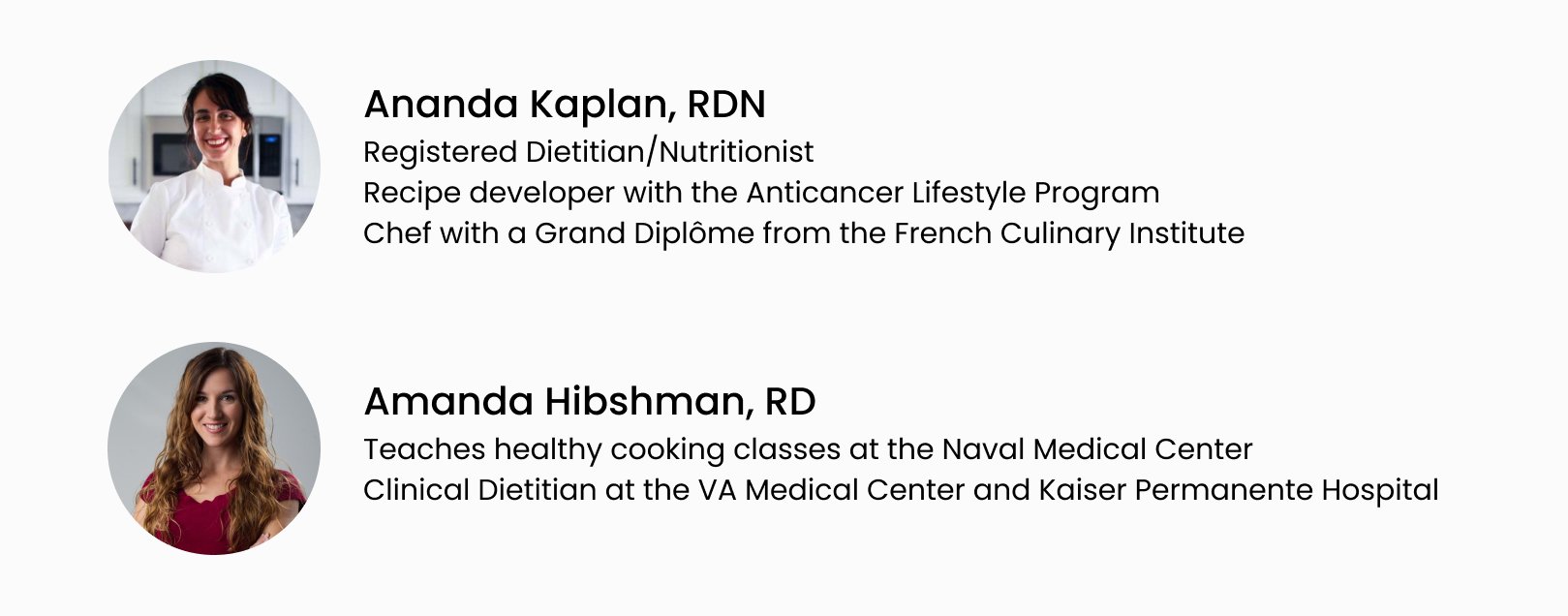belly brains
HEALING CHRONIC DEPRESSION SYMPTOMS THROUGH NUTRITIOUS FOODS
belly brains heal, relieve and revert chronic depression symptoms for U.S adults by delivering tailored nutritious and delicious meal kits.
ROLE
Research / Product + Service Design
PROJECT TIME
In progress
CONTEXT
For my thesis project, I’m focusing on how understanding your chronic pain can actually change your pain.
Pain is considered chronic when it persists beyond the healing time, typically lasting six months or longer, when it’s less than six months, it’s considered acute pain. Until recently, pain was considered a solely biomedical problem requiring medications and surgeries, but we now understand that it’s much more. Multiple factors influence the pain we feel such as emotions, perceptions, environmental context, and social factors. These components now dictate that pain is biopsychosocial (short for biological, psychological, and social) and in order to effectively treat chronic pain, we have to understand that these are interconnected, equally important, and that one cannot live without the other two. For this project, I’m focusing specifically on psychological pain.
PSYCHOLOGICAL PAIN
Psychological components of health, currently known as mental health, are addressed differently and separately from the whole biopsychosocial pain sphere, in part because, until recently, we didn’t closely link these components to physical or biological pain. The psychological domain of pain includes cognitive, emotional, and behavioral factors: emotions, thoughts, beliefs, the meaning we assign our pain, memories, prior experiences, expectations, and coping behaviors.
TAKING THE DIVE - INITIAL RESEARCH
I decided to focus on chronic depression since it is the group of patients and experts I have the most access to in order to conduct research and testing.
DEPRESSION
According to the Mayo Clinic, “depression is a mood disorder that causes a persistent feeling of sadness and loss of interest. Also called major depressive disorder or clinical depression, it affects how you feel, think and behave and can lead to a variety of emotional and physical problems. You may have trouble doing normal day-to-day activities, and sometimes you may feel as if life isn't worth living.”
NUMBERS + STATISTICS
The National Institute of Mental Health (NIMH) estimates that 19.4 M or 7.8% of all adults in the United States, had at least one episode of major depression in 2019.
1.5% of these adults are affected by Persistent Depressive Disorder or PDD, (formerly called dysthymia) which is a form of depression that usually continues for at least two years.
“3.3 M of American adults live with chronic depression… on a daily basis.”
CAUSES FOR DEPRESSION
Following the Mayo Clinic’s research, it’s not exactly known what causes depression, but a variety of factors may be involved such as:
-
Biological Differences.
People with depression appear to have physical changes in their brains. The significance of these changes is still uncertain, but may eventually help pinpoint causes.
-
Inherited Traits.
Depression is more common in people whose blood relatives also have this condition. Researchers are trying to find genes that may be involved in causing depression.
-
Hormones.
Changes in the body's balance of hormones may be involved in causing or triggering depression. Hormone changes can result with pregnancy and during the weeks or months after delivery (postpartum) and from thyroid problems, menopause or a number of other conditions.
-
Brain Chemistry.
Neurotransmitters are naturally occurring brain chemicals that likely play a role in depression. Recent research indicates that changes in the function and effect of these and their interaction with mood stability may play a significant role in depression and its treatment.
PROBLEM FRAMING (IT SUCKS THAT…)
Based on my initial research and overall understanding of depression as part of chronic pain, I set out to a brainstorming session to exercise the process of tackling the same topic – depression – from different perspectives and puzzling it down to tiny pieces. This process led me to identify various problems and their sub-problems to set the stage in identifying my core problem.
SERVICE DESIGN IDEAS - BRAINSTORMING
To begin my service design brainstorming session, I decided to focus on one of the problems I previously listed: Common treatments for depression are most likely medicines and/or therapy. So I set myself to conceptualize different service ideas that could solve this problem.
NARROWING THE SCOPE
After brainstorming twelve different ways to address the same problem, I chose to focus on: A service that provides natural and alternative treatments for depression without medical invasion. This design idea resonated with me since this is the way I was brought up in my family; my dad being a doctor and my sister a nutritionist, the natural and healthy way was always the first approach to solving and/or treating for anything. I want to use my previous knowledge for this project.
SECOND ROUND OF RESEARCH
This second round of research was to find what nonmedical treatments exist for depression and one thing continuously appeared during this secondary research:
DIET QUALITY AND MENTAL HEALTH ARE DEEPLY RELATED
I decided to focus on how I could use food to treat/relieve depression symptoms for U.S adults (based on context research mentioned in the beginning).
PRIMARY RESEARCH - EXPERT INTERVIEWS
After continuously talking about my project and my amazing personal discovery of how food and mental health are related, a friend recommended that I reach out to a chef and dietitian –Ananda Kaplan – that she met during a seminar at the Bronx VA who talked about how certain foods have a positive and negative impact on our mood and energy levels.
My hour-long Zoom conversation with Ananda was extremely insightful as we talked about her background and journey to become a dietitian and focused the food service on the mental health unit at a NY hospital.
My conversation with Amanda Hibshman is pending on a date but we are already connected.
SYNTHESIS
Up until this point, I pretty much understand the relationship and interconnection between food and mental health. A few things I learned are:
-
The Mediterranean diet which is the leading example to help people with depression is considered the best and healthiest because it’s the most STUDIED, not because it’s necessarily the HEALTHIEST.
-
The key principles of the Mediterranean are good takeaways: high intake of Omega-3, fiber, vitamin D, prebiotic sources, no highly processed foods, no refined sugars, and everything as natural as possible.
-
Breakfast is indeed the most important meal of the day, but for other reasons. Our bodies fast while sleeping, so the first thing we eat/drink when waking up determines the rest of our day. Consuming pre and probiotics in the morning will protect us from oxidating due to stress, keep blood sugar levels stable, boosts the immune system, and more.
-
Food pairing is crucial as certain food combinations can provide nutritional and health benefits. For example, all the wonderful precancerous benefits of cruciferous veggies are killed when cooking them. One way of bringing back these dead enzymes is to add a bit of mustard seed powder. This combo provides the nutritional value we need.
This research wasn’t just surprising to me, but to most people I shared it with.
This was my design opportunity.
THE PROBLEM
People diagnosed with depression are not aware that choosing the correct foods can help with mood, energy levels and ultimately revert symptoms of depression.
SOLUTION
This is still a work in progress.
belly brains is a subscription-based meal kit delivery service for U.S adults with diagnosed chronic depression intended to heal the mind and body by working with nutritional foods that boost mood and energy levels.
HOW DOES IT BENEFIT OUR CUSTOMERS?
belly brains benefits our customers by providing fast and easy meal prep kits which have a positive impact on their minds and body and providing educational material along the way.
belly brains also encourages Cognitive Behavioral Therapy (CBT) (a psycho-social intervention that aims to reduce symptoms of various mental health conditions, primarily depression and anxiety disorders) by cooking thus contributing to the purpose of relieving symptoms of depression.
HOW WILL WE GET OUR CUSTOMERS?
We will get our first users by targeting our customers through social media and subway ads and we’ll grow our audience by playing with words and concepts used by depression specialists to appeal to our customers.
IN PROGRESS - NEXT STEPS
Now that I know what my core problem is and I have begun designing a solution, the next steps are:
Flow of how the service works
Create a service blueprint to further understand how this works
Product design/prototype: including box and educational material






